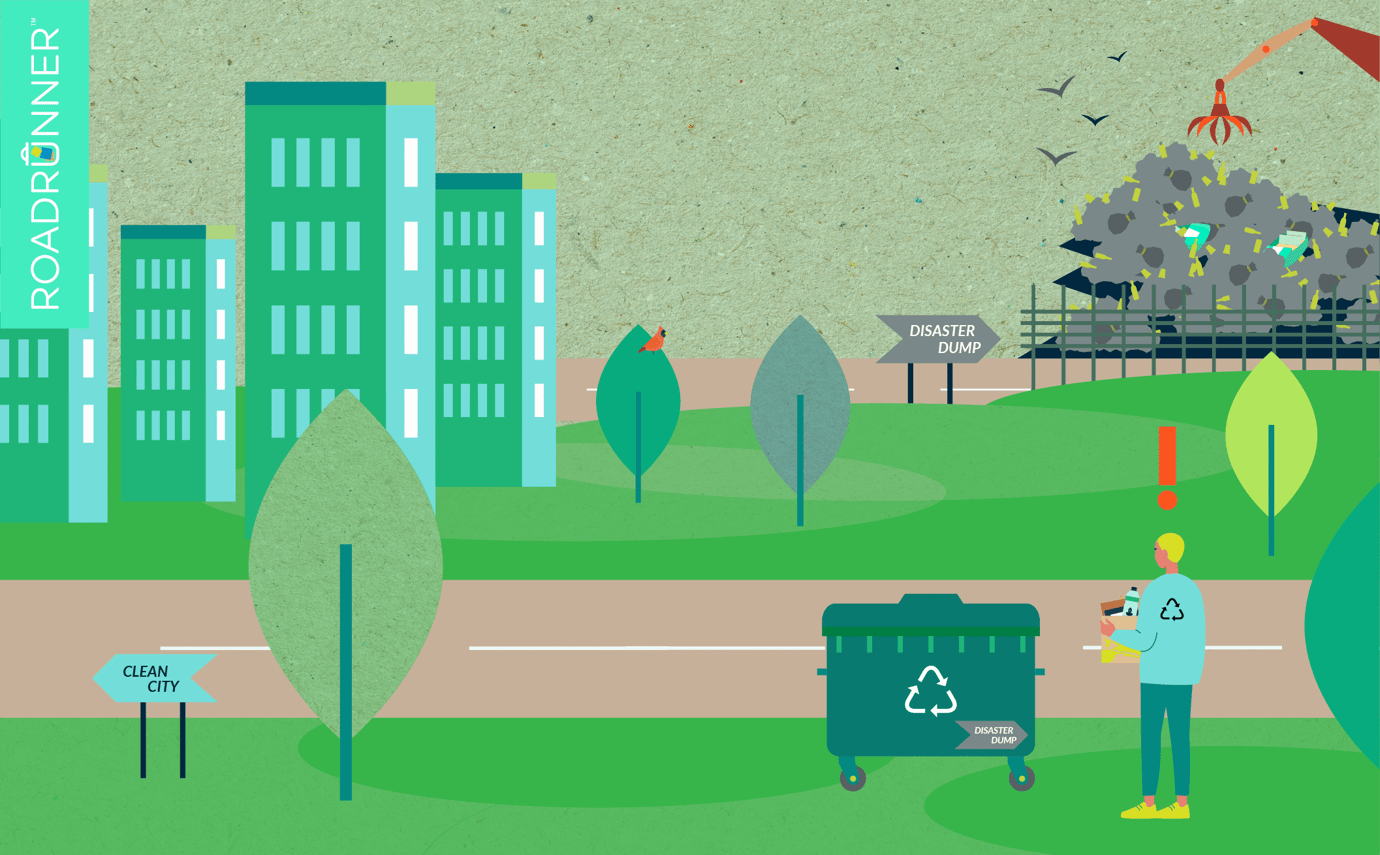Did you know that a single contaminated material can end up sending an entire batch of recyclables to the landfill? Not only that, but your business might incur a contamination fee as a result. Contamination occurs when an item or material makes its way into a recycling container but is difficult, or impossible, to process at a Materials Recovery Facility (MRF). This can happen by accident or through wishycling, which is when we think a certain material can be salvaged, but unfortunately causes more harm than good when placed in a recycling container. Thankfully, contamination is preventable, and all it takes is a little education and understanding. In this post, we detail which contaminates to look out for and the best practices for keeping your recyclables clean.
Look Out For These Common Contaminates!
The items below can contaminate an entire load of recyclable materials and force your hauler to send it to a landfill instead. Always do your best to avoid placing these items into your recycling container(s).

electronics + small appliances
Electronics contain lead, cadmium, and mercury, and they are considered hazardous waste that can be harmful to the environment and human health when improperly disposed of. Consider donating or trading in your electronics and appliances to retail stores if they are in good condition. If they are not salvageable for donation, most areas have local drop-off programs that will help you discard and/or recycle the devices using specialized processes. If you're in need of a one-time pickup of electronic devices, check out our RoadRunnerGO service page to schedule.
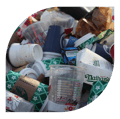
FOOD + LIQUID RESIDUE
Items that contain food or drink residue are not processable at recycling facilities. Avoid recycling food containers that have more than eight percent (8%) of food or drink residue. Food & drink contamination is commonly found on take-out containers, greasy pizza boxes, and bottles & jars that have not been rinsed. As a rule of thumb, rinse and dry your bottles and containers before recycling to clean up residue. Lastly, any soiled fibrous materials should be sent to landfill.

Greasy Pizza Boxes
Pizza boxes are made from cardboard, but the oil from pizza often seeps into the cardboard and it cannot be separated from the fiber during the pulping process. This makes the cardboard less valuable and harder to process. When in doubt, send your items like this to landfill to avoid contaminating other materials

Plastic Bags
While technically made from recyclable plastic, thin plastic bags tend to clog up recycling equipment, causing major delays and potential harm to workers at the recycling facility. Plastic bags are, however, recyclable at specialized facilities. Check out this website and plug in your zip code to find a local drop-off for plastic bags near you.

Hoses, Lights, Extension Cords
Cords can wrap around recycling equipment causing severe damage and may lead to shutting down the entire facility. Yikes. Look into some electronic recycling programs as they may accept and recycle cords for you, instead of tying up a recycling facility.
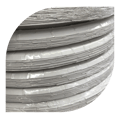
Used paper napkins, plates, cups, tissues
These materials are not recyclable if they are already used. They are often soiled with food, drink, and other contaminants that diminish their quality. However, there are many compostable options for these items!
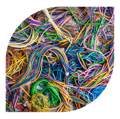
non-recyclable plastic
Many facilities will not accept plastics #3-7. Be sure to check with your local facilities to learn which plastics they accept.

yard waste
Although yard waste is organic, that doesn’t mean that it is clean or recyclable. Like food waste, if your material is dirty, then the value of the materials is significantly reduced. Consider composting if possible.
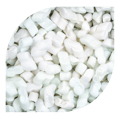
"Styrofoam" (polystyrene foam)
Polystyrene foam's tiny fibers make it difficult to properly break down during the recycling process. While this material is technically recyclable, the cost to recycle “styrofoam” outweighs the value. Polystyrene foam also does not decompose, so it's best to avoid using this material altogether whenever possible. You can read more about why polystyrene foam is an environmental problem on our blog.
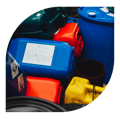
Hazardous waste
Hazardous waste contains a variety of chemicals that are harmful to the environment and create unsafe work environments. Materials such as paint, automotive fluids, car batteries, and pesticides require special handling when you dispose of them.
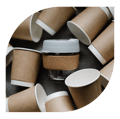
Disposable Cups
Most single-use paper cups contain a lining of polyethylene film which renders it non-recyclable because the recycling facility isn't able to separate the plastic film from the paper material. Whenever possible, replace disposable cups with reusable mugs!

Plastic Film
Similar to cords, plastic film can get stuck in recycling equipment and cause damage and delays. Plastic film, such as produce bags, dry cleaning bags, plastic wrap, and bubble wrap is not recyclable in most cases. Check out this website and plug in your zip code to find a local drop-off for plastic film near you.
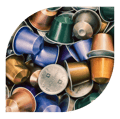
Coffee Pods
Coffee pods are made from a combination of plastic, aluminum, and paper which can't be easily separated for recycling. Try using a reusable coffee pod instead!

Ceramics
Most recycling facilities are not able to melt down ceramics for recycling. Local drop-off sites may accept and recycle your ceramics for you.

Plastic Straws
Plastic straws are not accepted by most facilities, because they are small and flexible, and can get stuck in machinery. Avoid using single-use straws, or replace them with metal straws.
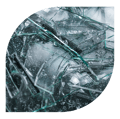
Broken Glass
Broken glass can be very dangerous for recyclers and service providers. Never recycle broken glass along with other recyclable materials. If you are not able to reuse the glass, wrap it in newspaper and toss it in the trash. You can read more about why glass recycling is going away on our blog.
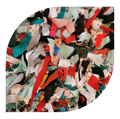
Textiles
Textiles are recyclable, but placing them in the recycling bin along with your other recyclables will contaminate the designated recycling stream. As much as possible, try to find a local recycler that accepts textiles, as opposed to sending them to a landfill. Many retailers will accept and recycle your unwanted textiles for you.
Consequences of Contamination
![]()
LOW RECYCLING
RATES
Contaminated materials are not recyclable, resulting in low recycling rates for businesses.
![]()
HIGH CONTAMINATION FEES
Contamination fees are expensive and your containers may not be serviced.
![]()
HIGH VOLUME STILL ENDS UP IN LANDFILL
Large amounts of your valuable recyclable materials will end up in landfills
How To Avoid Contamination
In addition to looking out for the common contaminates, the following practices will help to keep your materials valuable, your recycling rates high, and contamination rates low:
Keep It Clean
Separating your materials is what keeps them valuable and clean. This will keep your diversion rates high and contamination rates low. Learn about our Clean Stream Recycling Method.
Education
Every recycling facility accepts different materials, so it's beneficial to sit down with your employees and explain what materials your business can recycle and the best practice for doing so.
Label Containers
Labeling your containers will eliminate confusion, minimize contamination and ensure your materials remain valuable. This way, your employees will always remember what to recycle!
Now that you have a good understanding of the 'common contaminates' and the best practices for avoiding contamination, we're hopeful that it will make a huge impact in keeping your materials out of landfill and save your business money. Let us know in the comments below how your business avoids contamination. Are you looking to implement a clean-stream approach for your business’ recycling? Feel free to reach out to us and we’d be happy to chat about how RoadRunner can improve your operations!
